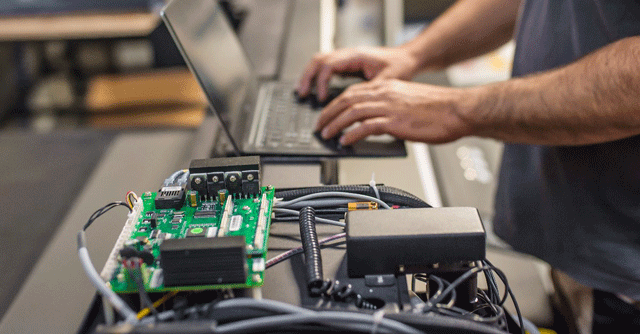
Intel details new chip packaging design to be used in Meteor Lake chips


Intel dropped new information about its new tile-based chip design at Hot Chips, an industry event on semiconductors. The new design has been used in Intel’s upcoming Meteor Lake, Arrow Lake, and Lunar Lake processors.
Intel said that the new design creates a stack of central processing unit (CPU), graphics processing unit (GPU), system-on-chip (SoC), and I/O tiles using the company’s Foveros interconnect technology. It is based on the open Universal Chiplet Interconnect Express (UCIe) specification that makes chiplets designed and manufactured on different process technologies by different vendors compatible with each other.
UCIe is an open standard created to encourage the wider adoption of chiplet-based CPUs. Early this year, Intel, Apple, ARM, Samsung, and Google created an industry consortium to promote UCIe.

Meteor Lake is going to be Intel’s first chiplet-based CPU.
Chiplet-based CPUs have a modular design that combines multiple smaller dies to create a single CPU package. It is being done because incorporating more transistors on a single die is becoming a challenge.
Apple’s new M1 Ultra chip, launched at the Spring event in March, is also based on a chiplet design.

Further, Intel also previewed its new GPU for data centres. Its code-named Ponte Vecchio and is designed to address the compute density in high-performance computing (HPC) and artificial intelligence (AI) driven supercomputing workloads.
Intel said it also leverages its OneAPI model to simplify API abstractions and cross-architecture programming.
Ponte Vecchio is also based on the new tile-based design and uses embedded multi-die interconnect bridge (EMIB) and Foveros advanced packaging technologies. Intel claims a single package of the new GPU contains more than 100 billion transistors.

Intel also previewed the tile-based Xeon D-2700 and 1700 series chips for 5G, IoT, enterprise, and cloud applications.
“Advanced packaging technologies like Intel’s EMIB and Foveros usher in a new era in chipmaking, expanding from what you can design on a single chip to what you can mix and match together in flexible system-in-packages,” said Pat Gelsinger, chief executive of Intel.
Intel has recently entered the foundry services business and will manufacture chips for MediaTek. Before this Intel only made products for its X86 CPUs for PCs and servers. The company has been facing stiff competition from AMD in the segments. According to data from Mercury Research, Intel led the X86 CPU market with a 72.3% market share at a 7% annual decline as of Q1 2022. AMD accounted for 27.7% market, growing at 7% annually.

